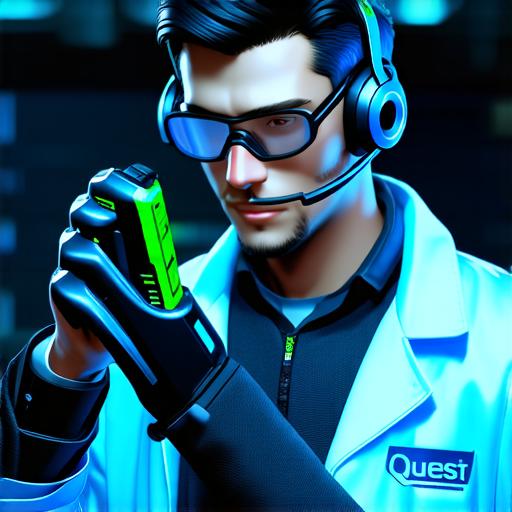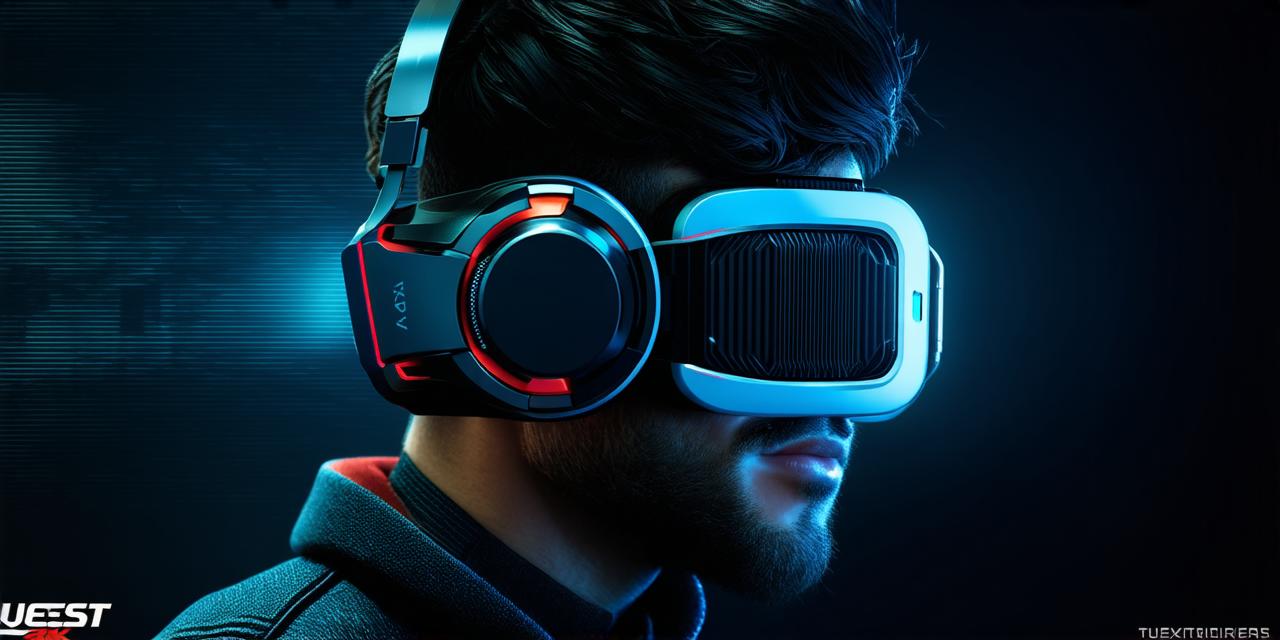<!DOCTYPE html>
Introduction
Mixed reality (MR) technology has been gaining significant attention in recent years due to its potential to revolutionize various industries such as gaming, education, and healthcare. The Oculus Quest 3, a new virtual reality (VR) headset recently announced by Facebook, promises to bring a new level of immersion and interactivity to VR experiences. However, some mixed reality developers are wondering if the Quest 3 will support MR experiences in addition to its VR capabilities. In this article, we will explore whether mixed reality is available on the Oculus Quest 3 and discuss its potential impact on the future of MR technology.
What is Mixed Reality?
Mixed reality (MR) is a type of immersive experience that combines elements of virtual and real-world environments to create a hybrid environment that allows users to interact with both virtual and physical objects. MR technology uses sensors, cameras, and other tools to track the user’s movements and adjust the virtual environment accordingly, creating an engaging and interactive experience that blurs the line between reality and fiction.
Mixed Reality vs Virtual Reality
While VR technology has been around for several decades, MR technology is still in its early stages of development. However, both VR and MR technologies share some similarities, such as their ability to create immersive experiences that transport users to new and exciting environments. The main difference between VR and MR is the level of interaction between the user and the virtual environment. In VR, the user’s movements are tracked by sensors and cameras, and the virtual environment adjusts accordingly. In MR, the user can interact with both virtual and real-world objects, creating a more seamless and natural experience.
Mixed Reality on Oculus Quest 3
The Oculus Quest 3 is a new VR headset that promises to bring a new level of immersion and interactivity to VR experiences. While the official specifications for the Quest 3 have not been released yet, some sources suggest that it will support both VR and MR experiences. However, there is no concrete evidence to confirm this at this time.
Mixed Reality Developers and the Oculus Quest 3
Mixed reality developers are excited about the potential of the Oculus Quest 3 to support MR experiences. Some companies are already developing MR applications for the Quest 3, including games, educational programs, and healthcare simulations. However, there are also concerns about the limitations of the Quest 3 in terms of its hardware capabilities and the complexity of MR technology.
Hardware Limitations
The Oculus Quest 3 has several hardware limitations that could impact its ability to support MR experiences. For example, it uses a single camera for tracking the user’s movements, which may not be sufficient for creating an immersive and seamless MR experience. Additionally, the headset’s display resolution is lower than some other MR devices on the market, which could limit the level of detail and realism in virtual objects.
Complexity of MR Technology
Mixed reality technology is still in its early stages of development, and it is significantly more complex than VR technology. Developing an MR experience requires a deep understanding of computer vision, machine learning, and other advanced technologies. This complexity could make it difficult for some developers to create compelling MR experiences on the Oculus Quest 3.
Real-Life Examples of MR Technology
Despite these challenges, there are several real-life examples of mixed reality technology that demonstrate its potential to revolutionize various industries. For example, in the gaming industry, companies like Epic Games and HTC have developed MR games using their Vive Pro Eye headset. In the education sector, companies like HoloLens have created interactive MR experiences for students to learn about science and history. In healthcare, companies like Oculus Health have developed MR simulations for medical professionals to practice surgical procedures in a safe and controlled environment.
Case Studies of Mixed Reality on Other Devices
There are several case studies of mixed reality technology being used on other devices that could provide insights into the potential of the Oculus Quest 3 to support MR experiences. For example, the HTC Vive Pro Eye has been used to create immersive MR experiences for gaming, education, and healthcare applications. The HoloLens has also been used in various industries, including manufacturing, architecture, and engineering.
Expert Opinions
There are mixed opinions among experts about whether the Oculus Quest 3 will support MR experiences. Some believe that the headset’s hardware limitations could limit its ability to create compelling MR experiences. Others believe that as technology advances, the Quest 3 could become a powerful tool for MR development.
Conclusion
The Oculus Quest 3 is still in the early stages of development, and it is unclear whether it will support mixed reality experiences. However, if the Quest 3 does support MR technology, it could have significant implications for various industries such as gaming, education, and healthcare. While there are challenges to overcome, mixed reality technology has already demonstrated its potential to create immersive and interactive experiences that blur the line between reality and fiction. As the technology continues to evolve, we can expect to see more innovative MR applications on devices like the Oculus Quest 3.
FAQs
Will the Oculus Quest 3 support mixed reality experiences?
While some sources suggest that it will support both VR and MR experiences, there is no concrete evidence to confirm this at this time.
What are the hardware limitations of the Oculus Quest 3 that could impact its ability to support MR experiences?
The Oculus Quest 3 uses a single camera for tracking the user’s movements, which may not be sufficient for creating an immersive and seamless MR experience. Additionally, the headset’s display resolution is lower than some other MR devices on the market, which could limit the level of detail and realism in virtual objects.

What are some real-life examples of mixed reality technology that demonstrate its potential to revolutionize various industries?
There are several real-life examples of mixed reality technology that demonstrate its potential to revolutionize various industries such as gaming, education, and healthcare. For example, companies like Epic Games and HTC have developed MR games using their Vive Pro Eye headset. In the education sector, companies like HoloLens have created interactive MR experiences for students to learn about



